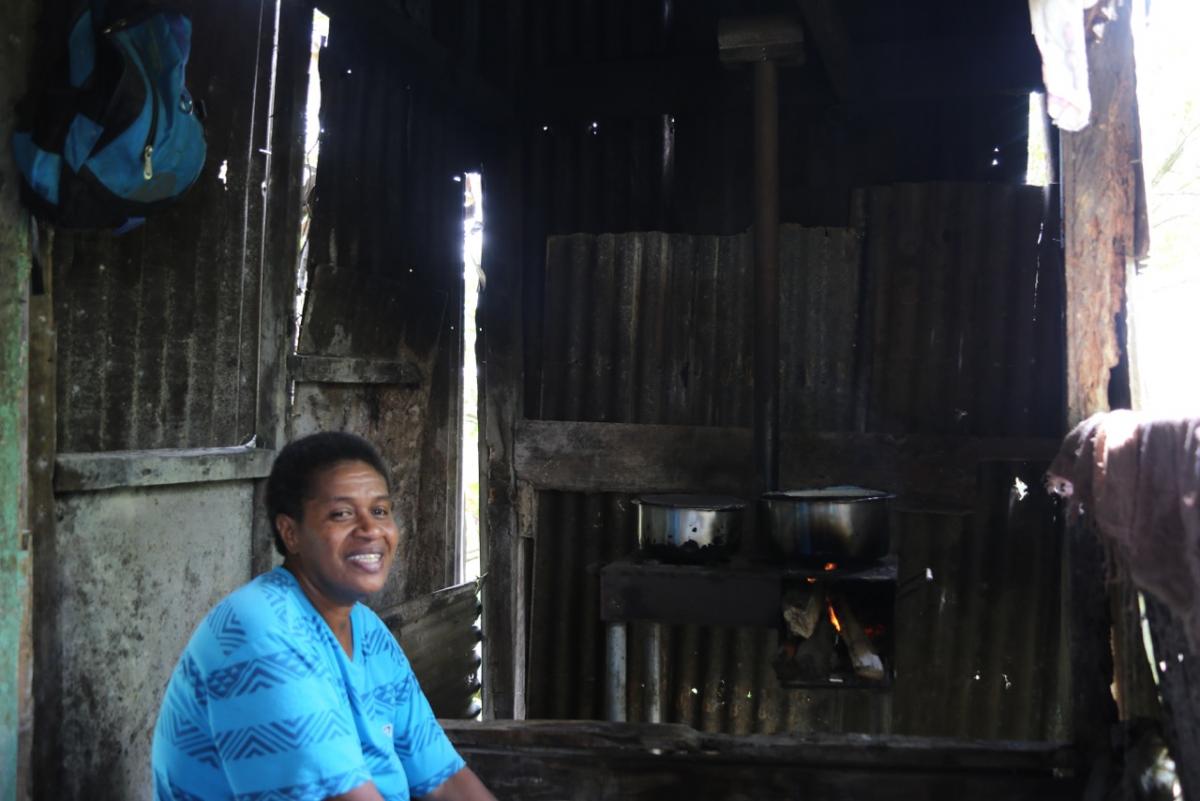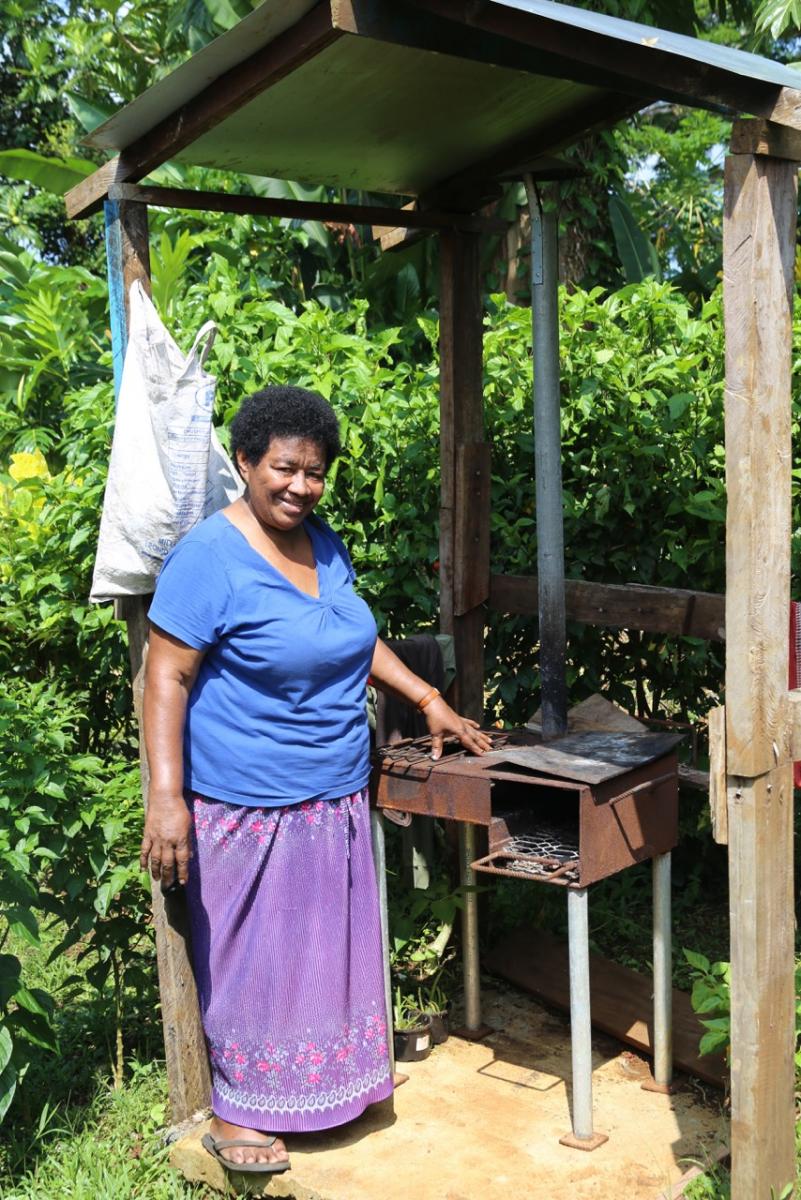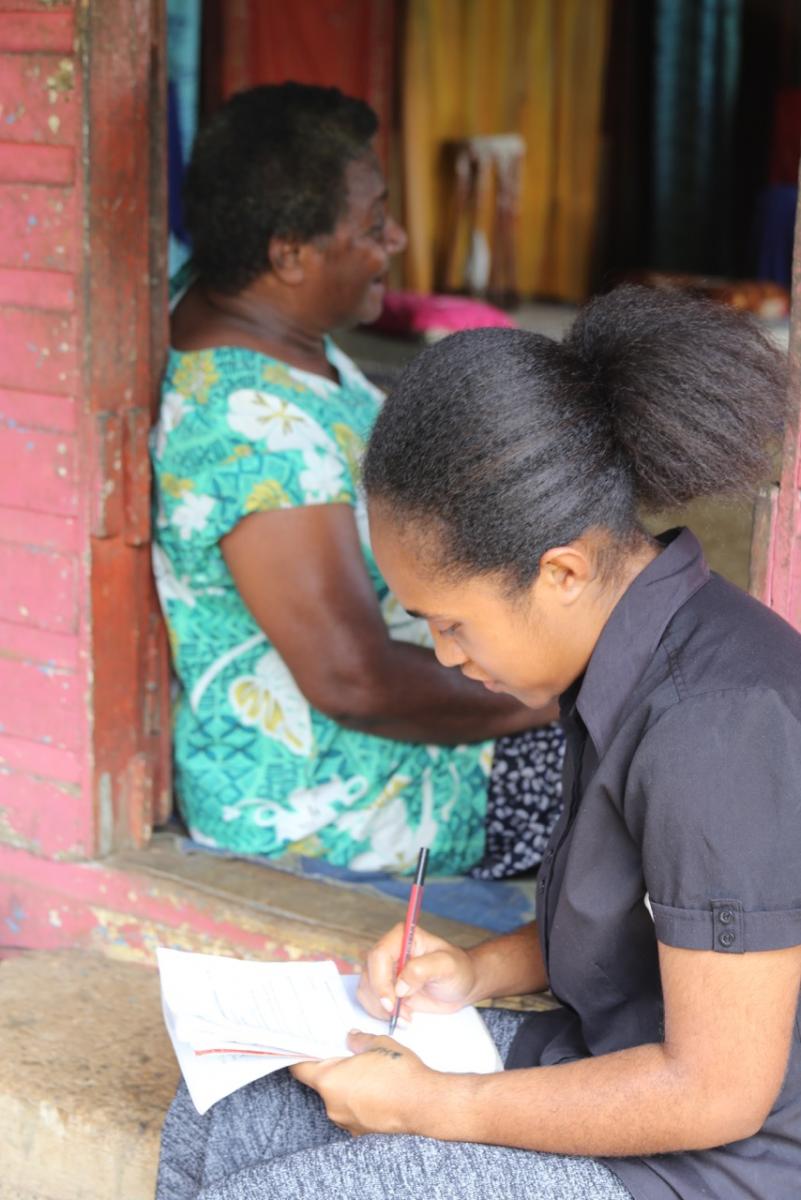Empowering communities through cooking stoves
Returning to assess the impacts and benefits of the cook stoves provided by its Small Grants Initiatives project, IUCN’s Climate Change Mitigation and Risk Reduction (CCMRR) programme team carried out their final wrap-up visit at Nakalawaca village in Tailevu, Fiji on 20 November.
After successfully applying for the Energy, Ecosystems and Sustainable Livelihoods Initiative’s (EESLI) Small Grants Programme in 2016, the Gender Climate Change Alliance (GCCA) was awarded USD20,000 thousand to support the local design and manufacture of high-efficiency cook stoves to introduce to the community of Nakalawaca Village. Complementing the benefits to Nakalawaca, GCCA also initiated a seedling planting programme to replenish forestry resources.
“By replenishing the forestry resources, not only will this assist in offsetting carbon, it will also provide feedstock for the reduced fuel demands associated with food preparation in the village”, says Andrew Irvin, CCMRR Project Officer.
As part of the visit and because a few households were already in the midst of using their cook stoves for preparing lunch, the team took the opportunity to interview them on-site resulting in a 20% survey of the total cook stove recipients.
“The survey began with gender disaggregation. Between the 6 households interviewed, despite there being 15 males and 12 females, all of the interviewees using the cook stoves were female”, Andrew Irvin continued.
At the end of the survey, it quickly became apparent the amount of firewood needed to bring water to a boil and cook food, had drastically been reduced by 40-50%. Furthermore, the reliance upon kerosene had been minimised with a few households no longer using fossil fuel at all.
“With this cook stove, the amount of firewood I use is so less compared to when I used to cook on an open fire. Food, even cooks faster now. And because of how the cook stoves are designed, I have installed it indoors so no matter what kind of day it is, whether rainy or sunny, I can still enjoy cooking”, says Nakalawaca village Headman’s wife, Joana Vakayavudali
As part of assessing the impacts and benefits of the cook stoves and for future project delivery, the survey also documented any recommended improvements and modifications to the cook stove design. Not only was the reduction of workload recognised but also the importance of planting trees to replace those being used as firewood was highlighted during the survey.
In line with the reforestation efforts included in the project, the interviewees mentioned they had planted more than 40 seedlings distributed by GCCA to help generate additional biomass to offset the firewood regularly used for cooking.
The GCCA, an NGO comprising mainly of volunteers from a wide section of different professionals, aims to help and empower the disadvantaged in our society by improving their living standards.
Contributing to the sustainable development of their livelihoods, the people of Nakalawaca acknowledged IUCN and its grassroots community work through GCCA.



